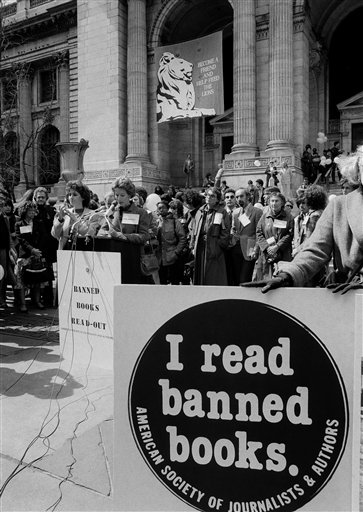The federal appeals court decision in Minarcini v. Strongsville City School District, 541 F.2d 577 (6th Cir. 1976), reaffirmed the principle that school board officials do not have unfettered discretion to remove books from library shelves simply because they find the books objectionable.
Strongsville school board was sued for removing books from library shelves
The controversy arose in Strongsville, Ohio, after local school board members voted to remove Catch 22 by Joseph Heller and two books by Kurt Vonnegut from library shelves and the curriculum. Five students, through their parents, then sued the school board, claiming a violation of their First Amendment rights.
Appeals court said school boards could determine what books would be used in classrooms
The Sixth Circuit Court of Appeals rejected the claim that the school board could not remove books from the curriculum. According to the appeals court, Ohio law empowered local boards of education to determine what books would be used in classrooms. The Sixth Circuit found “no federal constitutional violation in this Board’s exercise of curriculum and textbook control as empowered by the Ohio statute.”
Appeals court said removal of books from library raised First Amendment concerns
However, the appeals court ruled in favor of the student plaintiffs in the removal of the books from library shelves. “A library is a storehouse of knowledge,” the court wrote. “Here we are concerned with the right of students to receive information which they and their teachers desire them to have.” The appeals court determined that the removal of library books clearly raised First Amendment concerns.
In 1982 the U.S. Supreme Court employed a similar rationale in its decision in Board of Education, Island Trees Union Free School District v. Pico (1982) on the removal of library books.
David L. Hudson, Jr. is a law professor at Belmont who publishes widely on First Amendment topics. He is the author of a 12-lecture audio course on the First Amendment entitled Freedom of Speech: Understanding the First Amendment (Now You Know Media, 2018). He also is the author of many First Amendment books, including The First Amendment: Freedom of Speech (Thomson Reuters, 2012) and Freedom of Speech: Documents Decoded (ABC-CLIO, 2017). This article was originally published in 2009.

